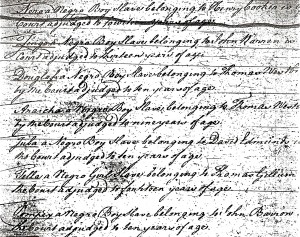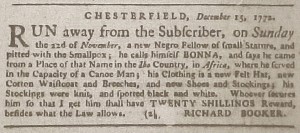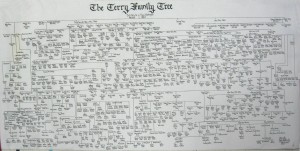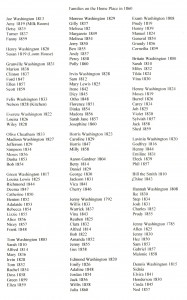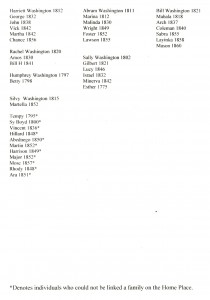Nero a Negro boy slave belonging to Henry Cooker is by the court adjudged to fourteen years of age.
Zingo a Negro boy slave belonging to John Warren by the court adjudged to thirteen years of age.
Douglas a Negro boy slave belonging to Thomas Westbrooks by the court adjudged to ten years of age.
Anarcha a Negro boy slave belonging to Thomas Westbrooks by the court adjudged to nine years of age.
Juba a Negro boy slave belonging to David Edmunds by the court adjudged to ten years of age.
Tilla a Negro girl belonging to Thomas Gillum the court adjudged to fourteen years of age.
Pompey a Negro boy slave belonging to John Barrow the court adjudged to ten years of age.
During the Colonial period, slave owners were required to pay taxes on their slaves from ages twelve to fifty years old. When Africans were brought to the colonies and it was evident that they were adults they were simply added to tax rolls called tithables. When small children and teenagers arrived from Africa and their ages were uncertain, the slave owners would have to take them into court and a judge would assign an age for the slave, which was then recorded in minute or court order books. Most of the slaves were assigned English names, although some retained their true African names. Some of the court orders also list the names of the ships the Africans arrived in and the dates of arrival. Many of these individuals can be traced in later documents such as tax records, wills, and estate settlements. These records can prove to be a genealogical goldmine for African American researchers.
